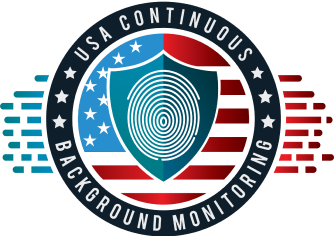Obtaining and maintaining a security clearance can seem like an intimidating process. However, requesting an updated FBI criminal record report, known colloquially as a “Rap Sheet” is a proactive step individuals can take to participate fully in navigating their candidacy. This in-depth article provides a comprehensive guide on accessing one’s FBI Identity History Summary and leveraging the information strategically throughout the clearance process.
Thorough background investigations are standard for national security roles requiring access to classified or sensitive information. Addressing any past legal issues upfront demonstrates transparency and integrity – qualities that foster the trustworthiness adjudicators seek to establish. With diligent preparation, past mistakes need not define one’s future eligibility when character reform is evident.
Let’s explore how to empower ownership of your security clearance journey from the beginning. The Rigor of Clearance Investigations
Background investigations conducted for security clearances are meticulous initiatives designed to analyze an individual’s character, work, and attributes throughout their lifetime. Vetting ensures those entrusted with national security secrets have unwavering loyalty, honesty, and judgment.
Investigators have immense resources, including vast interlinked repositories of public and non-public records. Fingerprints are run through the FBI’s NGI database which combines III and other biometric data on criminals and persons of interest. Financial, employment, and residence histories are exhaustively verified through interviews, records searches, and open-source due diligence going back decades. International travel and foreign contacts also face intensive scrutiny.
The process casts a vast net, leaving no facet of one’s personal or professional path untouched. Even minor infractions or errors from long ago risk resurfacing, so proactive disclosure strengthens one’s case. These intensive checks illustrate why addressing weaknesses openly fosters integrity essential to such positions of extreme trust and public accountability.
The Value of an FBI Rap Sheet
To gain insight into one’s criminal history as housed within the FBI’s fingerprint records, individuals may request an Identity History Summary – better known by the informal moniker “Rap Sheet.” This report compiles all associated biometric and biographical data across federal, state, and regional law enforcement inputs into the Next Generation Identification system.
While not perfect due to local agency cooperation and data sharing limitations, the Rap Sheet is a centralized criminal history snapshot from America’s leading law enforcement database. Equipped with these findings well before an investigator comes knocking, one retains control of their narrative and avoids surprises.
Additionally, local court record requests are prudent given the FBI database depends on complete and accurate submissions from contributing agencies. County and municipal authorities likely maintain disposition details independent of the FBI. Comprehensively addressing all aspects bolsters transparency.
The FBI Rap Sheet: Options for FBI Criminal History Records
The FBI Identity History Summary program, better known by its slang term “Rap Sheet,” provides individuals the chance to obtain their criminal history records maintained in the bureau’s master fingerprint database – the Next Generation Identification (NGI) Interstate Identification Index (III).
There are two primary submission methods: online digital requests or traditional paper service by mail. • Online Ordering
The FBI website has a streamlined online identity history summary check portal accessible here: https://www.fbi.gov/services/cjis/identity-history-summary-checks
The submission process entails:
1. Completing Name/Date of Birth details and consent form digitally
2. Uploading legible photos of valid ID like driver’s license front/back
3. Paying the $18 fee via credit card (current delivery 1-2 weeks electronically) The criminal history record will be emailed securely as a PDF attachment upon approval. • Mail-In Requests
For those lacking online access or preferring complex copy delivery, standard FBI Form FD-258 fingerprint cards can be ordered, completed, and mailed in along with payment.
To initiate this process:
1. Download and print Form FD-258 from the FBI website
2. Visit a local police station or civilian fingerprint service for inked prints
3. Complete identifying info on FD-258 and include an $18 check/money order 4. Mail packet to FBI CJIS Division for processing (4–6-week turnaround)
Both FBI checks reflect what other agencies have transmitted to their centralized records. Direct requests are prudent to all former jurisdictions of residence as well. Now, let’s explore optimally using the results received.
Analyzing Rap Sheet Findings
Upon receiving the Identity History Summary, thoroughly analyze each entry with an investigative eye toward contextual understanding and documentation needs.
• Review Entry Details
Carefully examine dates, charges, locations, and disposition descriptors, noting incomplete or ambiguous information requiring supplementation. Look for patterns over time reflecting potential reform. Cross-reference personal recollections.
• Create an Analytical Chart
Compile entries sequentially in a spreadsheet or document, capturing all available information in a research-friendly format. Note questions, discrepancies, and documentation targets to address each listing forensically. Consult an attorney if complex.
• Obtain Court Records
Contact all jurisdictions where entries originated to request official documentation verifying case resolutions like sentencing details or expungements showing truth over time. Prove familiarity with your history.
• Address Minor Errors
Note potential mistakes by reporting agencies that misrepresent severity over decades. Prepare supporting explanations and archival evidence as needed.
With a deep understanding of your full background per available records, formulating the next steps becomes clearer. But thorough preparation requires time – start the process early.
Strategically Addressing Findings
The next crucial phase involves proactively addressing concerns once analysis illuminates all relevant past issues according to available records. Several options strengthen transparency:
• Draft a Personal Statement
Craft a sincere narrative fully owning mistakes while clearly outlining growth, lessons learned, and ongoing commitment to character, ethics, and responsibility. Emphasize stability. • Compile Character References
Approach references, especially from employers, can speak to virtues like trustworthiness demonstrated since any issues. Ensure forms address the timeframe and capacity to safeguard classified materials.
• Consult an Attorney
For complicated situations, schedule consultations with a clearance-focused attorney to strategize and ensure supplemental documentation and statements mitigate rather than aggravate concerns appropriately.
Considerations for Interview Preparation
As one diligently addresses FBI Rap Sheet entries, keep the investigative interview as a target endpoint in sight. Proper preparation bolsters confidence and effectiveness:
• Anticipate challenging questions and craft humble, accountable, yet nuanced responses • Practice delivery to avoid appearing rehearsed while remaining calm under potential pressure • Discuss growth and reform, not excuses, deflections, or accusations about circumstances • Reference documentation and endorse positive opinions from employer letters of support • Express unwavering commitment to integrity and reformed character going forward • Welcome inquiries to verify statements through additional references if uncertainty exists • Close by reiterating lessons learned and the ongoing rehabilitation journey in an uplifting manner
With guidance from counsel, if a complex legal history exists, use information as an opportunity rather than an impediment to showcase transformation when trust is most crucial to evaluate. Ownership fosters renewed faith.
Conclusion
By requesting an up-to-date FBI Rap Sheet, individuals empower proactive participation in their security clearance candidacy from the very start. With diligence, even considerable past issues can be addressed strategically through complete transparency, verified documentation, and testimony from others.
When mistakes are openly and accountably discussed rather than passive-aggressively hoped to avoid discovery later, applicants demonstrate the integrity, character, and trustworthiness so valued within national security spheres. With guidance and effort, past faults need not obstruct future service to a country where trust is paramount when entrusted with its most sensitive secrets. Own your candidacy – your future opportunities are within your control to shape for the better.

